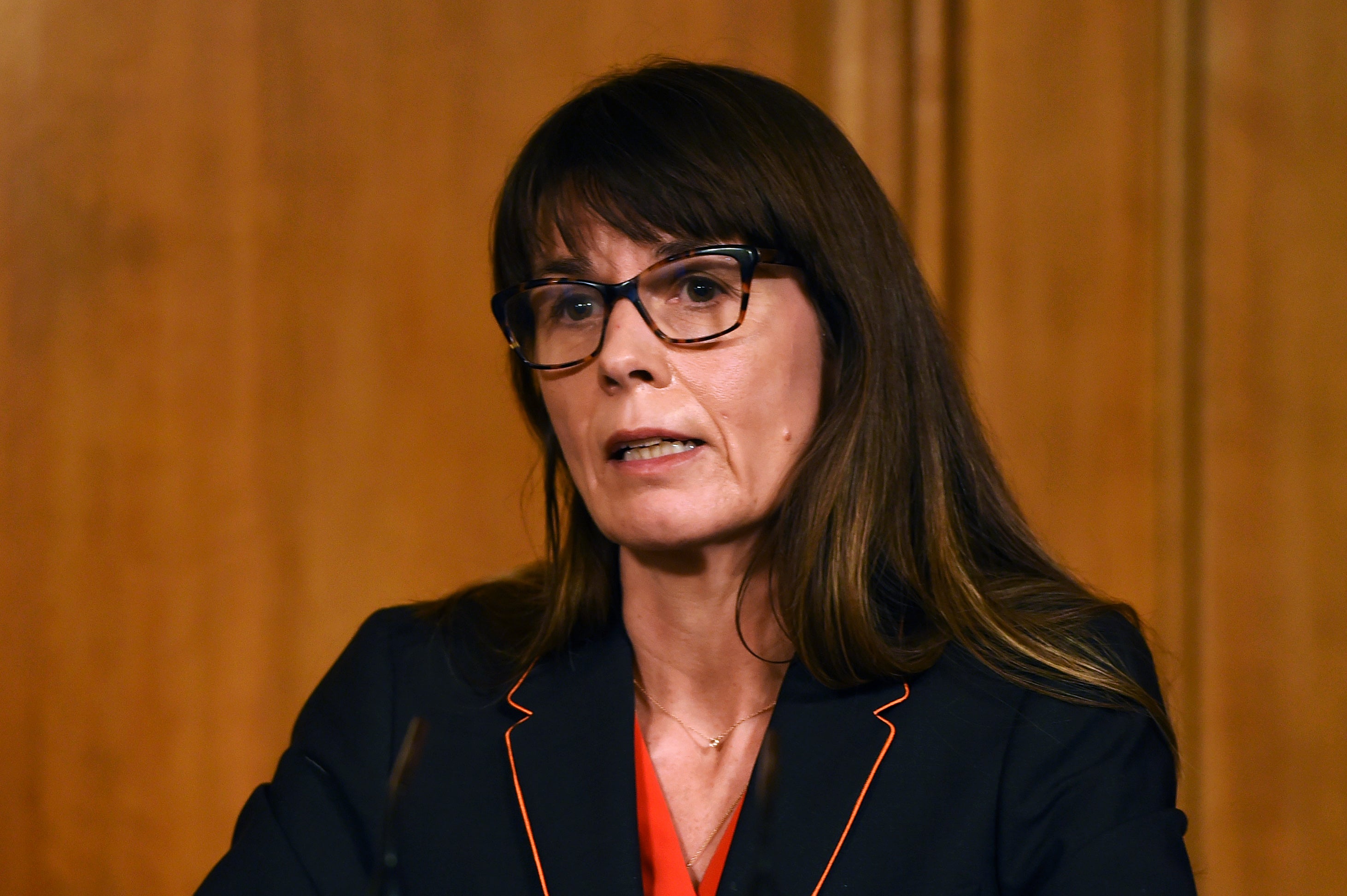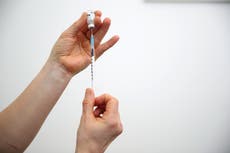More Covid measures may be needed in face of omicron, government medical adviser warns
UK has reported a number of hospitalisations linked to omicron, the expert said

More restrictions may be needed to tackle an “inevitable” and “big wave of infections” propelled by the fast-spreading omicron Covid variant, said the chief medical adviser for the UK Health Security Agency (UKHSA).
Dr Susan Hopkins said people will have to reduce social contact as much as possible, especially now the government’s guidance to work from home has returned.
She added that lateral flow tests should be used before meeting people outside of one’s own household.
Dr Hopkins said there are reports that Brits are being hospitalised over the last few days with the omicron variant.
It comes after doctors in South Africa have said the vast majority of their patients are showing milder symptoms than those caused by the delta variant.
But experts have urged caution over the reports that omicron symptoms are milder until more facts are established about the variant.
Dr Hopkins told BBC’s The Andrew Marr Show: “We’re seeing hospitals diagnose more and more people coming through their emergency departments, and we expect to see increases in that number. I have not had a report of death yet.
“But it’s really important to remember it is just over two weeks since we first detected the cases in the United Kingdom, and that hospitalisations start to be seen in about two weeks and deaths usually at three to four weeks.
“I think it’s too early to make any assumptions at this point in time.”
The spread of omicron in the UK led Boris Johnson to trigger ‘plan B’ – which requires everyone who can work from home to do so, and the wearing of face masks in more indoor venues.
There are also reports that a ‘plan C’ is being drawn up for the winter wave of infections that Dr Hopkins said is “inevitable”.
Dr Hopkins said more Covid measures may be needed, adding that the government has “very difficult” decisions ahead.
“I think that the restrictions that the government have announced are sensible. I think that we may need to go beyond them. But we’ll need to watch carefully what happens with hospitalisations,” she said.
Her remarks came as education secretary Nadhim Zahawi said the UK is in a “race” to get as many Covid booster jabs to eligible adults “as quickly as possible”.
Mr Zahawi said PM Mr Johnson will be saying more about the booster programme “later today”, adding that more than 20 million third jabs have been administered so far.
He told Sky News’ Trevor Phillips On Sunday programme: “It is now a race between the booster and that protection, and the omicron variant.”
Asked what action is likely to be taken to increase the rate of booster jabs, he said: “There is absolutely a plan, and the Prime Minister will be saying more on this.”
According to overall UK omicron case numbers, Saturday’s 1,898 confirmed cases was up 50 per cent on Friday’s 1,265.
Saturday was also the fourth day in a row that more than 50,000 new cases of all strains of Covid were reported in the UK.
New modelling suggests that, under one scenario, almost twice the number of coronavirus patients could be admitted to hospital compared with last year due to the impact of omicron – which emerged last month.
Professor Andrew Hayward, member of the Scientific Advisory Group for Emergencies (Sage) from University College London, said omicron is “much more infectious” than previous strains.
“Maybe somewhere between twice and possibly three times as infectious,” he told LBC.
“What we can also see is that the vaccine, two doses of the vaccine, has relatively little impact on stopping that transmission.
“So putting those two together, and the fact that it’s already increasing, doubling every two or three days, what we can be pretty sure of is a very, very large wave of infections, bigger than the waves of infections that we’ve had before, so really the uncertainty is in how that’s going to translate into hospitalisations and deaths.”
Experts from the London School of Hygiene & Tropical Medicine (LSHTM) calculated figures which say a large wave of infections could occur over the next few months if tougher measures are not brought in.
Analysis by the UKHSA has found that the AstraZeneca and Pfizer vaccines provide “much lower” levels of protection against symptomatic infection with omicron compared with Delta.
But the UKHSA said a booster dose gives around 70 to 75 per cent protection against symptomatic infection with omicron.
All eligible adults can book their booster jab two months (61 days) after their second dose using the NHS national booking system, getting their top-up in protection three months (91 days) on from their second dose.
The national booking system will open to everyone aged 30 to 39 in England from Monday.
But it has been found that many people in this age group this weekend have been able to book their booster jab appointment already.
Join our commenting forum
Join thought-provoking conversations, follow other Independent readers and see their replies
Comments





Bookmark popover
Removed from bookmarks